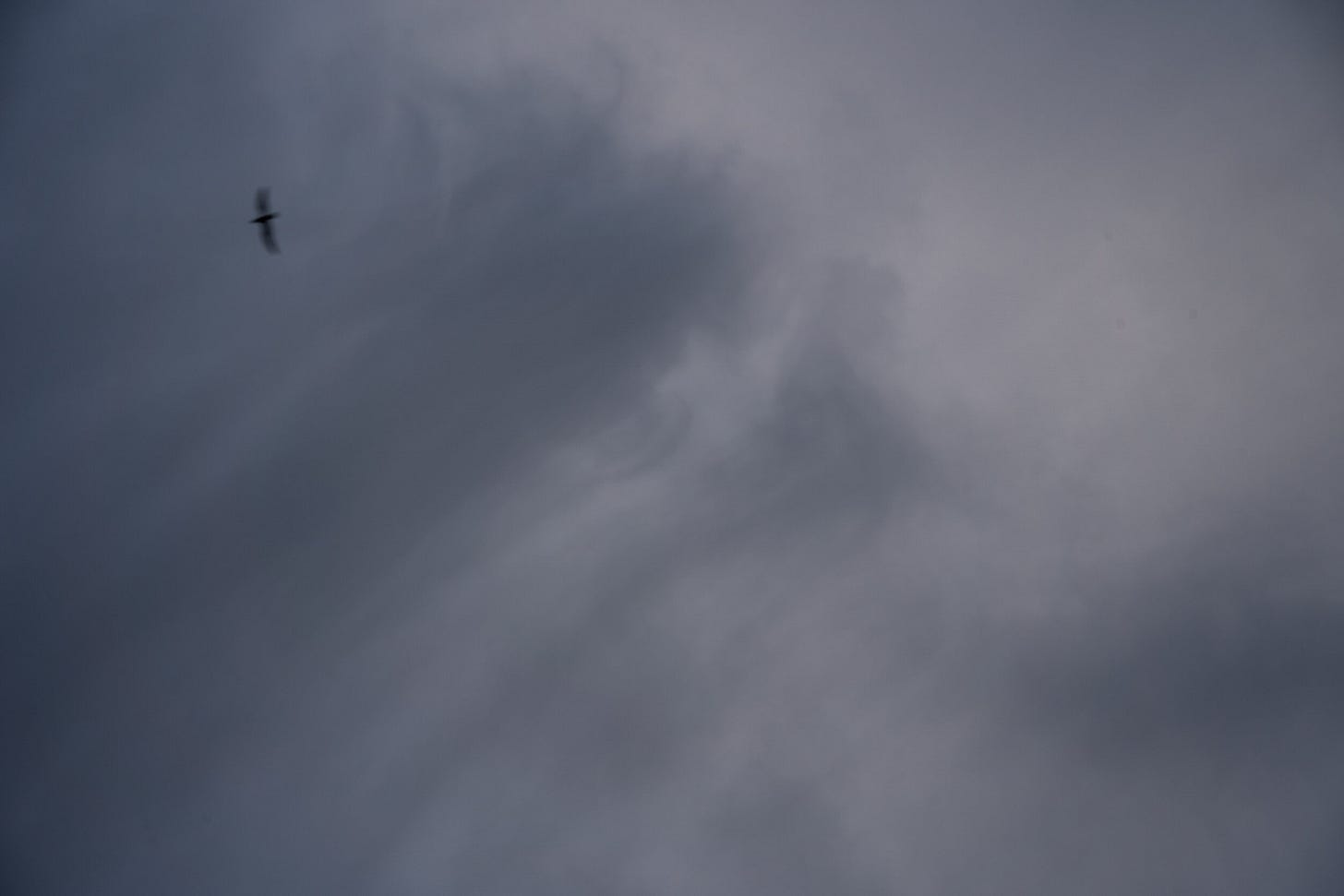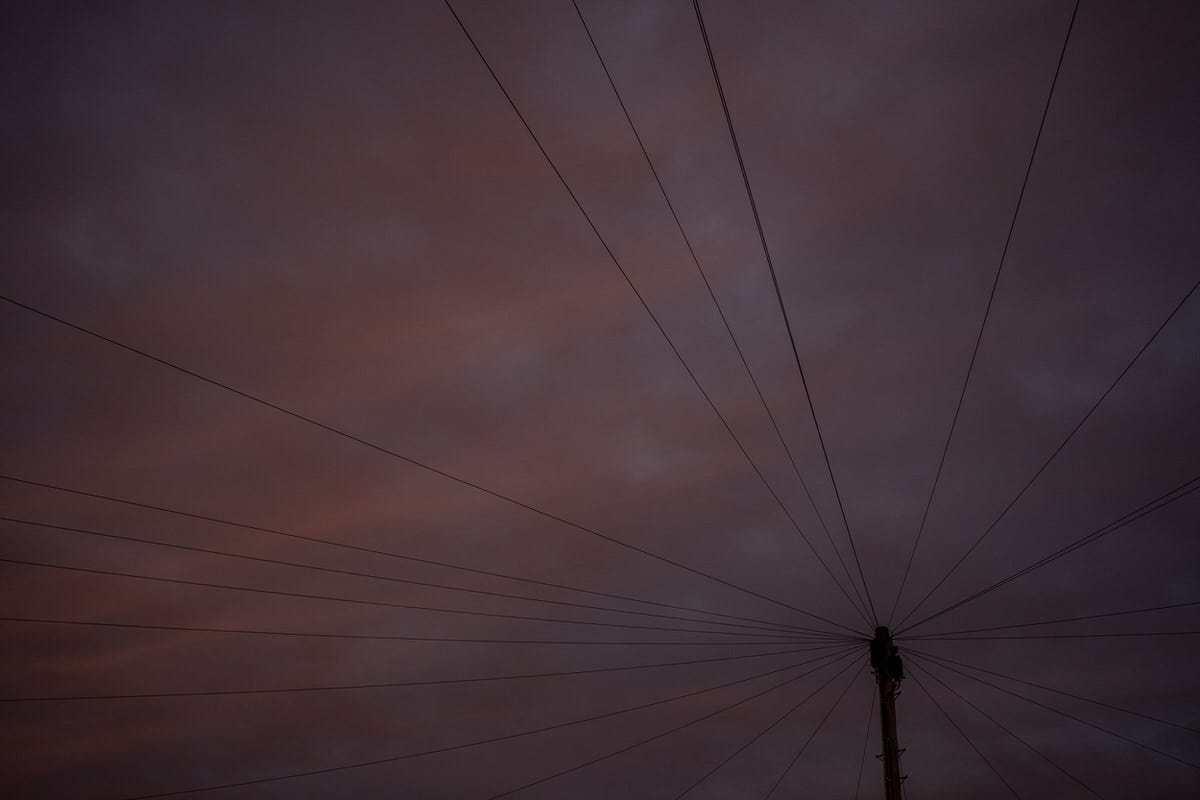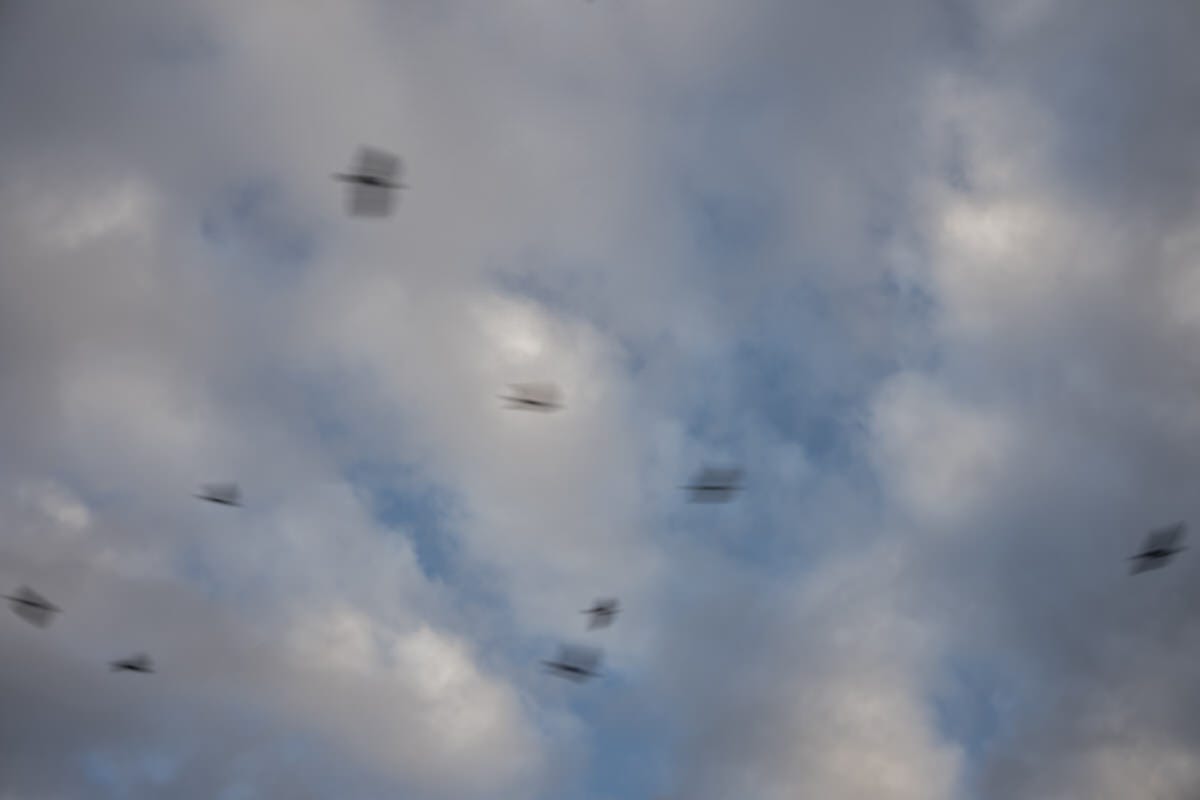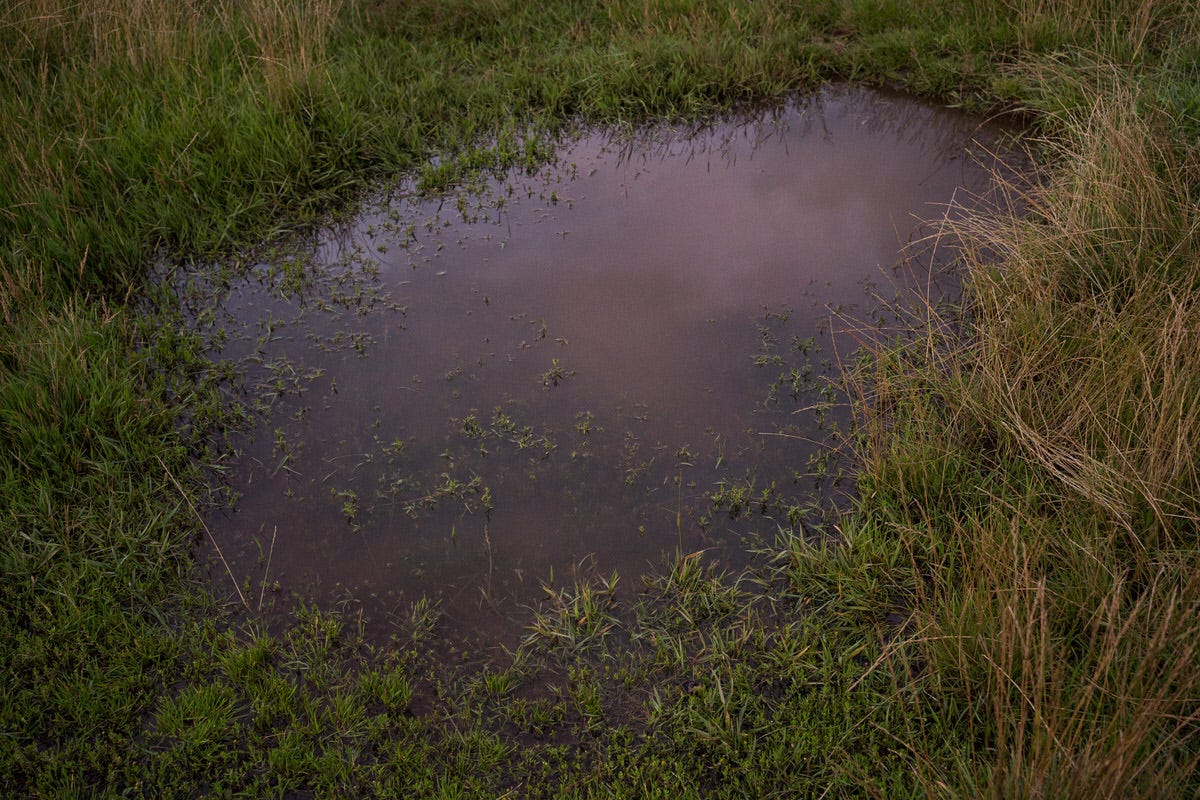Frankly, I don’t know what to write. I’m battling a low level cold and, you know, the crisis of humanity, so all my thoughts are incoherent, fragmented. Nothing I can say or do feels important right now, but I’m trying to fight this feeling, getting back to what I know can and will propel me into getting a grip on myself amongst the heartbreak: writing, art, photography.
So this missive will be just that: fragments of thoughts and memories, not my usual coherent self, no narrative, no solutions. I don’t know if I should even write any of this down, let alone hit “send” but here we go.
***
I have no words left in me. No arguments. You can’t have a meaningful conversation with someone who has a completely different set of facts from your own. Sometimes I feel like we exist in parallel universes. I’ve seen it happen before. It’s truly surreal.
Of course I could say that not killing and maiming children or intentionally starving a population should be a universal “no-no” in our set of facts and values, whatever else we believe in, but even that doesn’t seem to be the case anymore.
So I have no words. Just a mid level anxiety that keeps buzzing and humming and prevents me from concentrating on my work, or doing anything productive, or having a good night’s sleep.
“Injustice sensitivity” is a common thread among neurodivergent people and I know many of us who choose to engage in activism of any kind, or follow the news, feel this very acutely right now.
(I say “choose to” because it’s a choice. I often choose to disengage from the news because I know the impact it can have on me and my mental health… but some things are just too unjust to disengage from).
We are like canaries in the mines, we sense the disaster incoming before the rest of the world does.
***
Time stretches and compresses in equal measure. It’s been more than three weeks of the ongoing nightmare and I feel mostly frozen, consumed by endless horrible news that affects me deeply, waking my own inherited generational trauma.
My grandmother and great-grandmother survived the siege of Leningrad, a brutal 900 days in a city encircled by German troops during the Second World War. They didn’t last all 900 days there and were carried to safety over a frozen Ladoga lake, under constant bombardment (not all trucks made it out, sinking under the ice), but not before most of their - my - family died of starvation in 1942. I still don’t know where most of them are buried - one of many mass graves surrounding the city. When the siege was finally lifted in 1944 the total death toll topped 800,000.
I have friends who don’t know where they even come from, their grandparents orphaned in the same siege at a very young age, with no records or memories remaining of their lineage. I keep thinking how tragic that is, not knowing your story, losing that heritage.
I can’t even imagine what that must feel like for those with more recent and immediate experiences of traumatic events. I dare not phantom what scars it will leave in the psyche of those who survive this, and their descendants, repeating cycles of violence over and over, on both sides, just like it’s happening now.
What trauma will it leave in our collective memory as human beings? Where do we even go from here, when genocide can be committed live on our screens and paraded as such with no attempt to hide it, and we can’t even say “we didn’t know” because we knew and couldn’t stop it - or maybe we even gleefully cheered on.
***
One memory keeps resurfacing for me over and over again.
It was September 1999. I remember that week well. Actually, I remember the feeling well.
The feeling of not knowing if it’s your last night on earth, and whether you’ll live to see another day.
I was 19. Apartment blocks were being blown up across Russia (over 200 people were killed). I was all over the news, and no one in our huge 9-storey block slept that whole week. The men, including my father, were taking it in turns in overnight shifts to walk around the building, looking out for suspicious vans that could have been carrying the explosives. “Chechen terrorists” we were told. They got caught, apparently. Life went back to normal.
These attacks were what triggered (or used as an excuse to start - jury’s still out on this one) the second Chechen War that lasted 10 years, killed at least 30 thousand civilians (up to 80 thousand by other estimates), carpet bombing of Grozny, a wave (a flood?) of Islamophobia that continues to affect the minds to this day, Putin’s famous “we will kill them [terrorists] in the shitter”, and his subsequent election as President, setting Russia on the path it found itself on today.
Violence only breeds more violence. Killing only results in more killing. Over, and over, and over again.
***
I’ve been reading, watching, educating myself constantly in these past 3 weeks. Having conversations. Keeping an open mind. Taking action in whatever small way that I can. I know that I’m not an expert on the Middle Eastern (or any other) politics and will never be one.
But I don’t have to be, to spot hateful rhetoric. I don’t have to be, to see the injustice when its being broadcast live on TV, in all its vivid detail. I don’t have to be, to see our politicians putting greed and political convenience over their humanity, once again.
I don’t have to be, to see that this current bout of violence and injustice isn’t going to solve the threat of terrorism and extremism, but will only exacerbate it further. That’s always been the case in the past. We just don’t seem to learn from it.
I don’t have to be, to remain a thinking, feeling human being.
***
This is what I’ve been doing:
Writing to my MP, demanding he put pressure on the Prime Minister to support a ceasefire, and work towards fighting both antisemitism (all jews are not responsible for the actions of State of Israel) AND islamophobia (all muslims are not responsible for actions of a militant organisation, duh). I’m not holding my breath with my particular MP, but it’s important to write to them regardless. They work for us, even if they like to pretend otherwise. Britain still has a somewhat functioning democracy, so best utilise it.
Donating. Medical Aid for Palestinians is a reputable organisation, and I have supported War Child in the past too (War Child doesn’t currently work in Gaza but they help children from other conflict zones). Doctors without Borders, UN Crisis Relief and Choose Love are among others doing important work.
Attending a protest. Last week, over 500,000 people gathered in London to demand a ceasefire. I wrote in my previous post how I can see the right to protest in the UK being slowly restricted over the past few years. The recent protests I’ve attended were peaceful and family-friendly, and with legal observers present and minimum police involvement (complete opposite of what our Home Secretary wants everyone to believe).
Learning. I’ve only started scratching the surface and now diving deep into books on the topic, currently going through Ari Shavit’s My Promised Land. Next on my list are Ilan Pappé, Noam Chomsky, Rashid Khalidi and Gabor Mate (he writes on inherited trauma and is on my reading list anyway). I also recently read This is Not Propaganda: Adventures in the War Against Reality by Peter Pomerantsev and I highly recommend it as a general educational read on how our minds are influenced, particularly on social media.









I think this was very coherent and not at all disjointed. Injustice. Violence. Trauma. The terrible, cyclical nature of it, the way you can see the trainwreck happening yet again but are powerless to stop it. The powerlessness. The hatred. Ugh that. It's weighty and sits on our nervous system like a rough brick. Thank you for sharing.